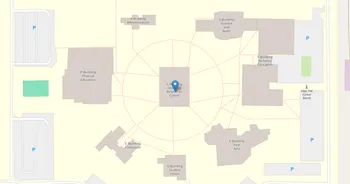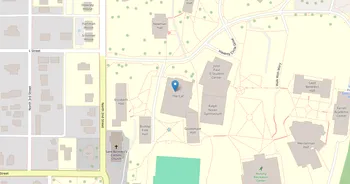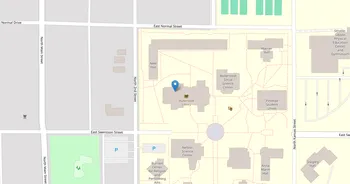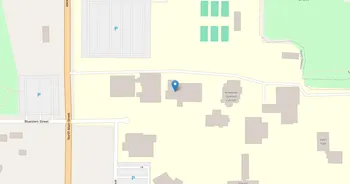Baker University (BU) : Overview, Courses, Scholarships & Rankings
About Baker University
Fun fact: Baker is known as Kansas's oldest university, set on a leafy campus in Baldwin City. Students lean into a liberal arts core with strengths in the sciences, business, education, and health fields. Small, discussion-heavy classes link with hands-on labs and studios. The library, tutoring and writing centers, advising, counseling, and career services sit at the center of daily life.
Campus life feels close-knit and tradition-rich. A stone chapel brought from England anchors the quad, and weekends fill with music, theater, service groups, intramurals, and nearby trails. Career prep stays practical with internships, clinical or teaching placements, and an alumni network that picks up the phone. Baldwin City adds a friendly downtown and a celebrated fall festival, while larger regional hubs nearby open doors for arts, research, and work.
Key Institutional Details
Contact & Profile
Academic & Institutional
Academic Programs & Fields of Study
Baker University (BU) offers 43 degree programs across 17 major academic fields, graduating approximately 433 students annually. The most popular fields by graduate volume are Business (5 programs, 152 graduates), Education (9 programs, 106 graduates), Health (5 programs, 71 graduates), Kinesiology (3 programs, 30 graduates) and Psychology (1 programs, 18 graduates). Explore program details, award levels, and graduate demographics below.
Business (5 programs, 152 graduates)
Business Administration, Marketing and Entrepreneurship
| Program Name | Graduates | Gender Distribution | Award Levels | CIP Code |
|---|---|---|---|---|
| Business Administration and Management | 113 |
|
Associate's
Bachelor's
Postbac Cert.
Master's
|
52.0201 |
| Business Administration | 23 |
|
Bachelor's
|
52.0101 |
| Organizational Leadership | 9 |
|
Master's
|
52.0213 |
| International Business and Trade | 5 |
|
Bachelor's
|
52.1101 |
| Accounting | 2 |
|
Bachelor's
|
52.0301 |
Education (9 programs, 106 graduates)
Educational Sciences, Teaching Methods and Pedagogy
| Program Name | Graduates | Gender Distribution | Award Levels | CIP Code |
|---|---|---|---|---|
| Educational Leadership and Administration | 44 |
|
Master's
Doctorate (R)
|
13.0401 |
| General Education | 34 |
|
Bachelor's
Master's
|
13.0101 |
| Higher Education Administration | 8 |
|
Master's
Doctorate (R)
|
13.0406 |
| Instructional Technology | 8 |
|
Master's
Doctorate (R)
|
13.0501 |
| Elementary Education | 4 |
|
Bachelor's
|
13.1202 |
| Secondary Education and Teaching | 4 |
|
Bachelor's
|
13.1205 |
| Special Education Teaching | 2 |
|
Master's
|
13.1001 |
| Physical Education Teaching and Coaching | 1 |
|
Bachelor's
|
13.1314 |
| History Teacher Education | 1 |
|
Bachelor's
|
13.1328 |
Health (5 programs, 71 graduates)
Healthcare Professions, Medical Sciences and Clinical Practice
| Program Name | Graduates | Gender Distribution | Award Levels | CIP Code |
|---|---|---|---|---|
| Registered Nursing | 56 |
|
Bachelor's
|
51.3801 |
| Public Health | 7 |
|
Bachelor's
|
51.2299 |
| Nursing Education | 5 |
|
Master's
|
51.3203 |
| Nursing Administration | 2 |
|
Master's
|
51.3802 |
| Health Humanities | 1 |
|
Bachelor's
|
51.3204 |
Kinesiology (3 programs, 30 graduates)
Exercise Science, Sports Medicine and Physical Recreation
| Program Name | Graduates | Gender Distribution | Award Levels | CIP Code |
|---|---|---|---|---|
| Sport and Fitness Management | 16 |
|
Bachelor's
Master's
|
31.0504 |
| Exercise Science and Kinesiology | 13 |
|
Bachelor's
|
31.0505 |
| Parks, Recreation, and Leisure Studies | 1 |
|
Bachelor's
|
31.0101 |
Psychology (1 programs, 18 graduates)
Psychological Sciences, Mental Health and Behavioral Studies
| Program Name | Graduates | Gender Distribution | Award Levels | CIP Code |
|---|---|---|---|---|
| General Psychology | 18 |
|
Bachelor's
|
42.0101 |
Interdisciplinary (2 programs, 10 graduates)
Cross-Disciplinary Studies and Integrated Research Programs
| Program Name | Graduates | Gender Distribution | Award Levels | CIP Code |
|---|---|---|---|---|
| Human Biology | 5 |
|
Bachelor's
|
30.2701 |
| Multi- and Interdisciplinary Studies | 5 |
|
Bachelor's
|
30.9999 |
Biological Sciences (2 programs, 9 graduates)
Life Sciences, Biotechnology and Biomedical Research
| Program Name | Graduates | Gender Distribution | Award Levels | CIP Code |
|---|---|---|---|---|
| Biology and Biological Sciences | 5 |
|
Bachelor's
|
26.0101 |
| Biochemistry | 4 |
|
Bachelor's
|
26.0202 |
Social Sciences (3 programs, 8 graduates)
Sociology, Anthropology and Political Science Studies
| Program Name | Graduates | Gender Distribution | Award Levels | CIP Code |
|---|---|---|---|---|
| Criminology | 4 |
|
Bachelor's
|
45.0401 |
| Economics | 2 |
|
Bachelor's
|
45.0601 |
| Sociology | 2 |
|
Bachelor's
|
45.1101 |
Communication (2 programs, 7 graduates)
Media Communications, Journalism and Public Relations
| Program Name | Graduates | Gender Distribution | Award Levels | CIP Code |
|---|---|---|---|---|
| Mass Communication and Media Studies | 5 |
|
Bachelor's
|
09.0102 |
| Speech Communication and Rhetoric | 2 |
|
Bachelor's
|
09.0101 |
Physical Sciences (2 programs, 4 graduates)
Chemistry, Physics and Earth Sciences Research
Admission Requirements & Test Scores
Comprehensive overview of admission criteria, standardized test score ranges, and application requirements for prospective students at Baker University (BU).
Application Requirements
Data based on IPEDS for 2022-2023 academic year. Test score ranges represent the middle 50% of admitted students (25th-75th percentile). Requirements may vary by program.
Tuition, Fees & Estimated Costs
Overview of tuition rates, housing, and other annual education expenses for undergraduate and graduate students
Financial Aid & Student Support
Summary of scholarships, grants, student loans, and financial aid statistics for undergraduate students
Student Success Metrics
Graduation rates and post-graduation earnings to help assess student outcomes and long-term value of education.
Loan Burden & Repayment Outcomes
Breakdown of loan repayment rates and student debt levels by income and dependency status.
Frequently Asked Questions
Find answers to the most common questions about Baker University (BU)
How much does it cost to attend Baker University (BU)?
The annual tuition at Baker University (BU) is $33,800 for in-state students. When including room and board, books, and other expenses, the total estimated cost is approximately $50,960 for in-state students. Additional costs include room and board $10,720 (on) / $9,720 (off) and books and supplies $1,250.
Data based on IPEDS program completions for 2022-2023 academic year. Tuition and cost estimates are approximate and may not include all fees, personal expenses, or transportation costs.
What academic programs and degree levels does Baker University offer?
Baker University (BU) offers 43 academic programs across 17 major fields of study, with available degree levels: Associate's, Bachelor's, Postbac Cert., Master's, Post-Master's, Doctorate (Research).
Most popular program areas include:
- Business Administration, Marketing and Entrepreneurship (5 programs)
- Educational Sciences, Teaching Methods and Pedagogy (9 programs)
- Healthcare Professions, Medical Sciences and Clinical Practice (5 programs)
- Exercise Science, Sports Medicine and Physical Recreation (3 programs)
- Psychological Sciences, Mental Health and Behavioral Studies (1 programs)
Data based on IPEDS program completions for 2023-2024 academic year. Numbers reflect programs where students graduated, not all offered programs.
What is the acceptance rate for Baker University?
Baker University (BU) has an 92.1% acceptance rate and a 28.1% yield rate, making it moderately selective.
Admission statistics breakdown:
- Total applicants: 911
- Students admitted: 839
- Students enrolled: 236
Data based on IPEDS for 2022-2023 academic year. Admission statistics may vary by program and application cycle.
What financial aid and scholarships are available at Baker University?
Baker University (BU) provides financial aid to 15% of first-time, full-time students, with average grants of $24,722 and average loans of $7,370.
Average financial aid amounts by type:
- Pell grants: $5,099
- State/Local grants: $3,763
- Institutional grants: $20,800
- Federal loans: $5,272
The university supports 229 students with grants and 147 students with loans annually.
Data based on IPEDS for 2022-2023 academic year. Financial aid amounts and percentages may vary by program, enrollment status, and individual circumstances.
What is the average salary for Baker University graduates?
Baker University (BU) graduates earn a median salary of $54,747 after 6 years and $63,855 after 10 years.
The salary range 10 years after graduation spans from $42,665 (25th percentile) to $90,310 (75th percentile).
Data based on IPEDS for 2022-2023 academic year. Salary data reflects graduates who received federal financial aid (approximately 60% of all graduates). Actual earnings may vary significantly based on program, location, and individual circumstances.
Related Universities




Found something useful? Help others discover it too! Share with friends, on social media, or save for later - every share helps someone find the information they need.